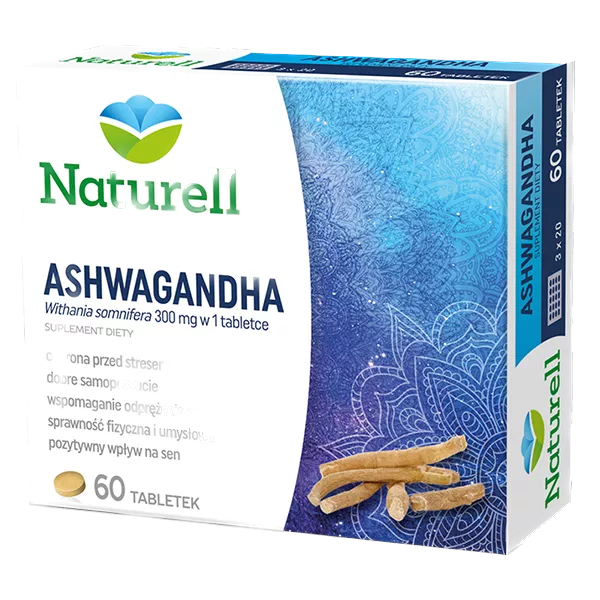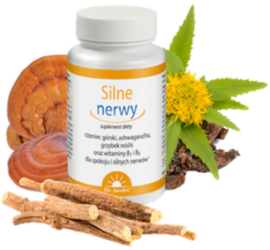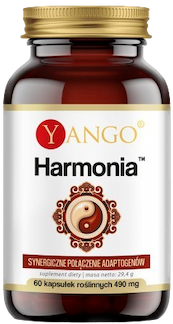Ashwagandha for women: 9 benefits backed by scientific research
Ayurveda has used the herb ashwagandha for more than 5,000 years to support female fertility, among other things.


Learn more about our editorial process
.

Learn more about our editorial process
.

Learn more about our editorial process
.

Learn more about our editorial process
.
Why you can trust us
Articles on Natu.Care are written based on scientific research, data from government websites and other reliable sources. The texts are written in cooperation with doctors, nutritionists and other health and beauty experts. Articles are reviewed before publication and during significant updates.
.Learn more about our editorial process
.Information about advertisements
Content on Natu.Care may contain links to products from the sale of which we may receive a commission. When creating content, we adhere to high editorial standards and take care to be objective about the products discussed. The presence of affiliate links is not dictated by our partners, and we select the products we review ourselves completely independently.
.Learn more about our terms and Conditions
.Ayurveda, the oldest healing system in the world, views women's health as a balance of the physical, emotional, mental and spiritual realms. It disagrees that aches and pains or mood swings are "part of a woman's life".
Eastern medicine practitioners often use ashwagandha to support women's health and wellbeing. In this article, you will learn how this plant can help you and how to use it safely.
From this article you will learn:
- How ashwagandha affects women's health.
- .
- How to use ashwagandha safely.
- .
- Which ashwagandha to choose.
- .
See also:
.
- Ashwagandha
- Ashwagandha - contraindications
- Ashwagandha - side effects
- Ashwagandha - what not to combine with?
- .
- Ashwagandha - morning or night?
- Ashwagandha - when does it start working?
- Ashwagandha for sleep, sex, stress - dosage
- Ashwagandha KSM-66 - what is it?
Ashwagandha - the power of ayurveda
.
Ayurveda is a ancient form of medicine originating in India, with roots dating back over 5,000 years. It combines health sciences, philosophy of life and spirituality. It promotes a holistic approach to health, focusing on maintaining a balance between body, mind and spirit. Ayurveda uses natural ingredients such as herbs, spices and other botanicals to treat and prevent various conditionsand.
One of the most important plants used in Ayurveda is ashwagandha. It belongs to the group of adaptogens, which are plants with unique properties that improve the body's resistance to physical, chemical and biological stress factors and have a tonic effectand.
Ashwagandha, which you may know as withania somnifera, Indian ginseng or ashwagandha it is the best studied adaptogen with interesting properties - its use can benefit wellbeing and healthand.
Best ashwagandha:
Ashwagandha Naturell
Product description
Extract from ashwagandha leaves and root will boost energy, overcome fatigue, improve memory and concentration. The product is recommended during periods of increased physical tension or intense physical activity.
Pros and cons
Extract from ashwagandha leaves and root will boost energy, overcome fatigue, improve memory and concentration. The product is recommended during periods of increased physical tension or intense physical activity.
Additional information
Extract from ashwagandha leaves and root will boost energy, overcome fatigue, improve memory and concentration. The product is recommended during periods of increased physical tension or intense physical activity.
Dr. Jacob's Strong Nerves
Product description
Dr. Jacob's Strong Nerves is a dietary supplement thatóry supports the nervous system and helps the body to cope with stress. Thanks to the synergistic combination of beneficial ingredientsós, Strong Nerves relieves anxiety symptoms, increases mental and physical stamina, and supports concentration.
The benefits of this supplement are particularly important for peopleóly exposed to chronic stress, those with sleep problems or employeesóly. It is worth mentioning that the supplement can also help to improve mental well-being and support the immune system.
.All this makes Dr. Jacob's Strong Nerves an excellent remedy for anyone looking for comprehensive support for their nervous system and overall mental performance.
Pros and cons
Dr. Jacob's Strong Nerves is a dietary supplement thatóry supports the nervous system and helps the body to cope with stress. Thanks to the synergistic combination of beneficial ingredientsós, Strong Nerves relieves anxiety symptoms, increases mental and physical stamina, and supports concentration.
The benefits of this supplement are particularly important for peopleóly exposed to chronic stress, those with sleep problems or employeesóly. It is worth mentioning that the supplement can also help to improve mental well-being and support the immune system.
.All this makes Dr. Jacob's Strong Nerves an excellent remedy for anyone looking for comprehensive support for their nervous system and overall mental performance.
Additional information
Dr. Jacob's Strong Nerves is a dietary supplement thatóry supports the nervous system and helps the body to cope with stress. Thanks to the synergistic combination of beneficial ingredientsós, Strong Nerves relieves anxiety symptoms, increases mental and physical stamina, and supports concentration.
The benefits of this supplement are particularly important for peopleóly exposed to chronic stress, those with sleep problems or employeesóly. It is worth mentioning that the supplement can also help to improve mental well-being and support the immune system.
.All this makes Dr. Jacob's Strong Nerves an excellent remedy for anyone looking for comprehensive support for their nervous system and overall mental performance.
Solve Labs Brain Tech Memory & Focus, adaptogens, capsules

- Composition: bacopa monieri, gotu kola, rhoiola rosea, ginseng, zinc gluconate, choline, vitamin B6
- Form: capsules .
- Packaging: 30 or 60 capsules .
- Dose: 2 capsules daily .
- Sufficient for: 10 or 20 days .
Product description
Adaptogens, vitamins and minerals to support the mózg and nervous system. Brain Tech has been developed for people needing long-lasting concentration, improved learning ability, memory and increased resistance to stress.
Pros and cons
Adaptogens, vitamins and minerals to support the mózg and nervous system. Brain Tech has been developed for people needing long-lasting concentration, improved learning ability, memory and increased resistance to stress.
Additional information
Adaptogens, vitamins and minerals to support the mózg and nervous system. Brain Tech has been developed for people needing long-lasting concentration, improved learning ability, memory and increased resistance to stress.
Adaptogens, vitamins and minerals to support the mózg and nervous system. Brain Tech has been developed for people needing long-lasting concentration, improved learning ability, memory and increased resistance to stress.
YANGO, Harmony, adaptogens, capsules
Product description
This dietary supplement contains a synergistic combination of 5 plant extracts that positively influence the body's homeostasis and well-being. The product is recommended for people living under stress, tension and those who are physically active.
Pros and cons
This dietary supplement contains a synergistic combination of 5 plant extracts that positively influence the body's homeostasis and well-being. The product is recommended for people living under stress, tension and those who are physically active.
Additional information
This dietary supplement contains a synergistic combination of 5 plant extracts that positively influence the body's homeostasis and well-being. The product is recommended for people living under stress, tension and those who are physically active.
Product tiles contain affiliate links
Ashwagandha - benefits for women
If you want to support your health and well-being naturally, Ayurveda offers you the most powerful adaptogen - ashwagandha. However, before using it, consult your doctor, especially if you suffer from chronic diseases and are on permanent medication. Ayurveda also prioritises your safety.
Recent scientific research on ashwagandha suggests that this plant potentially:
.
Improves resistance to stress
.
The end of the quarter at work, your child's problems at school, a spiteful neighbour or the smoky 'fossil' near your home. Stressors are lurking at you every day:
- Physical, such as extreme temperatures, noise, bodily overload or chronic illness.
- Physical.
- Emotional, i.e. aggravating relationship conflicts, pressure at school or work, loss of loved ones.
- Emotional, i.e. aggravating relationship conflicts, pressure at school or work, loss of loved ones.
- Psychological, which come from your thoughts and feelings - fear, uncertainty, worries about the future, self-criticism.
- Sociological, which come from your thoughts and feelings.
- Sociocultural, related to your interaction with society and culture, e.g. discrimination, poverty, problems related to race, gender or sexuality.
- Chemical, e.g. environmental pollutants, passive and active smoking, caffeine, drugs.
- .
And sometimes, it's all of these at once...
.
As an adaptogen, ashwagandha prepares the body to cope with various stress factors. According to clinical studies, the use of ashwagandha extract reduces stress and anxiety levels by lowering cortisol levelsand. Ashwagandha can relieve symptoms of chronic stress such as extreme fatigue, insomnia, mental tension.
The stress-relieving effects of ashwagandha may be due to its moderating effect on the hypothalamic-pituitary-adrenal axis. This axis is a key component of the endocrine system, which is involved in the regulation of the stress response and a range of other biological processes, including digestion, immunity, mood and emotion or sexuality..
 .
.
Kacper Nihalani doctor
.
Hormone support
.
Ashwagandha may support the function thyroid gland and regulate the hormones TSH, Ft-3 and Ft-4 in women who have low levels of these in their bloodand. In a scientific study, the use of ashwagandha extract for 8 weeks increased the production of thyroid hormones .
Thyroid hormones affect, among other things, mood, the nervous system, fertility, body weight and the appearance of hair, skin or nails. Disturbances in their secretion take their toll on the psyche, appearance and health..
 .
.
Kacper Nihalani doctor
.
But before you decide to use ashwagandha, get your thyroid tested. Unfortunately, supplementation is not advisable primarily for patients with hyperthyroidism, as ashwagandha has a stimulating effect on the secretion of the hormones TSH, Ft-3 and Ft-4 - and in hyperthyroidism their concentrations are impaired anyway.
If you have hypothyroidism, Hashimoto's disease, Graves-Basedov or other diseases of this organ, absolutely check with your doctor before trying ashwagandha.
Influences in regulating the menstrual cycle
.
A healthy woman should have a regular menstrual cycle. Any deviation, such as very infrequent or frequent periods, is indicative of an abnormality and can be a symptom of various diseasesand. Endometriosis or polycystic ovary syndrome (PCOS) often contribute to irregular menstrual cycles .
Scientific studies in rodents have shown that ashwagandha may affect cycle regulation by balancing reproductive hormones such as serum folliculotropic hormone (FSH), luteinising hormone (LH) and gonadotropin hormones. This balance may also be related to the effect on the stress hormone cortisol, high concentrations of which, among other things, inhibit the secretion of progesteroneand.
Promotes fertility
.
Ashwagandha can positively affect female fertility by regulating hormones and optimising ovarian function. Its adaptogenic properties may help the body cope with stress and maintain balance, which naturally promotes fertilityand.
According to a review of as many as 128 scientific studies published in 2021, ashwagandha may support female fertility because the isoflavones and flavonoids it contains can mimic the activity of oestrogen, an important hormone responsible for fertility, among other things .
.
Researchers are interested in this group of substances because they inhibit the action of oestrogen in the reproductive system and promote its action in other tissues, which helps to maintain healthy bones..
 .
.
Kacper Nihalani doctor
.
Reduces PMS symptoms
.
PMS ( pre-menstrual syndrome), or pre-menstrual syndrome, is a group of symptoms that can occur in women before menstruation begins. These symptoms include mood changes (e.g. irritability, lowered mood, anxiety), physical symptoms (breast pain, fatigue, bloating) and problems concentratingand.
Ashwagandha can reduce the severity of these unpleasant symptoms, mainly due to its anti-stress and tonic properties and by improving sleep qualityand. It may also be helpful in relieving muscle spasms and reducing fatigue .
Improves libido
.
In ayurveda, ashwagandha is used as a natural aphrodisiac .
A review of scientific studies from 2023 found that the use of ashwagandha extract significantly increased lubrication, improved orgasm occurrence and sexual arousal in the women tested. The researchers also noted an increase in frequency of sexual intercourse and sexual satisfactionand.
A 2022 research study found that ashwagandha may improve sexual health in women with hypoactive sexual desire disorder (HSDD) .
HSDD, or hypolibidemia, is the inhibition of sexual desire. It is a lack of spontaneous arousal, which leads to a waning interest in sex, even avoidance of intercourse, and a lack of feeling sexual needs.
 .
.
Kacper Nihalani doctor
.
Reduces menopausal symptoms
.
Hot flashes, fatigue, night sweats, mood swings, dry skin and mucous membranes... Period, or menopause, is a challenging time for women. Each of us will experience it differently, but we can all support ourselves with ashwagandha, which has shown the potential to relieve these symptoms.
This plant influences the production of certain hormones, reduces stress and anxiety and adds vitality so that the menopausal period does not have to be so troublesome. In a clinical trial involving 91 menopausal women, an eight-week treatment with ashwagandhaand:
- significantly improved quality of life,
- .
- reduced physical, psychological and genitourinary symptoms,
- .
- increased serum oestradiol levels,
- .
- lowered serum FSH and LH concentrations,
- .
Isoflavones and flavonoids in ashwagandha can mimic the activity of oestrogen, so ashwagandha may reduce menopausal symptomsand.
Improves sleep quality
.
At night, your body recovers and gains strength for the next day. It's important to look after sleep hygiene and ensure you get a nourishing rest. You know very well how you feel when the night has passed with you winding down, intermittent sleep or looking at your watch.
Ashwagandha benefits the quality of sleep through, among other things, its stress- and anxiety-reducing properties and its effect on cortisoland. A 2021 research review involving 400 participants found that the use of ashwagandha extract for 8 weeks :
- reduced the time to fall asleep,
- .
- increased sleep time,
- .
- reduced the number of awakenings after falling asleep,
- .
- improved mental alertness upon awakening,
- .
Importantly, these effects were also felt in people diagnosed with insomnia.
Ashwagandha for...hair?
.
The 2023 clinical trial involved 68 people with mild to moderate hair loss who were not taking preparations for hair loss. They applied 1-2 drops of ashwagandha or placebo to their scalp daily for 75 days.
Compared to the placebo group, the ashwagandha treatment group saw an increase in hair density, an improvement in hair growth rate and thickness, and a reduction in hair lossand.
.
Which ashwagandha to choose?
.
For ashwagandha to have a chance of working, choose a quality product. What to look out for?
- .
- Standardisation. Determines whether there is an active ingredient in a particular herbal product and in what quantity. Supplements with ashwagandha should specify standardisation for vitanolides content. Ideally, they should have a minimum of 2.5%.
- .
- DER ( Drug Extract Ratio). Indicates how much plant material was used to produce one part of the extract obtained. For example. A DER of 5:1 means that 5 g yielded 1 g of extract. The higher the DER, the stronger the extract.
- .
- Formula. If you want to be sure that a product is of high quality and produced under strict supervision and from legal sources, look out for patented formulas. This is usually a name with a caveat mark, e.g. KSM-66 Ashwagandha®.
- .
- Daily dosage. In human clinical trials, beneficial effects were reported with 450-600 mg of the standardised extract daily for a minimum of 8 weeksand.
- .
Ashwagandha in tablets, powder, or perhaps decoction?
.
Choose the form of ashwagandha use according to your preferences. On the market you have the following available:
- drops,
- .
- tablets,
- .
- capsules,
- .
- dry,
- .
- powdered root,
- .
The typical form of the supplement, i.e. capsules, for example, will work well if you value convenience - you sip and forget. If you have trouble swallowing large tablets, drops work well, and you can even buy them in different flavours and add them to a smoothie or shake.
If you want to feel a sense of wellbeing, it's a good idea to take the capsules.
If, on the other hand, you want to feel a bit of ayurveda in your life, buy dried, powdered root or ready-made blends for the famous moon milk.
Delicious moon milk with ashwagandha
.
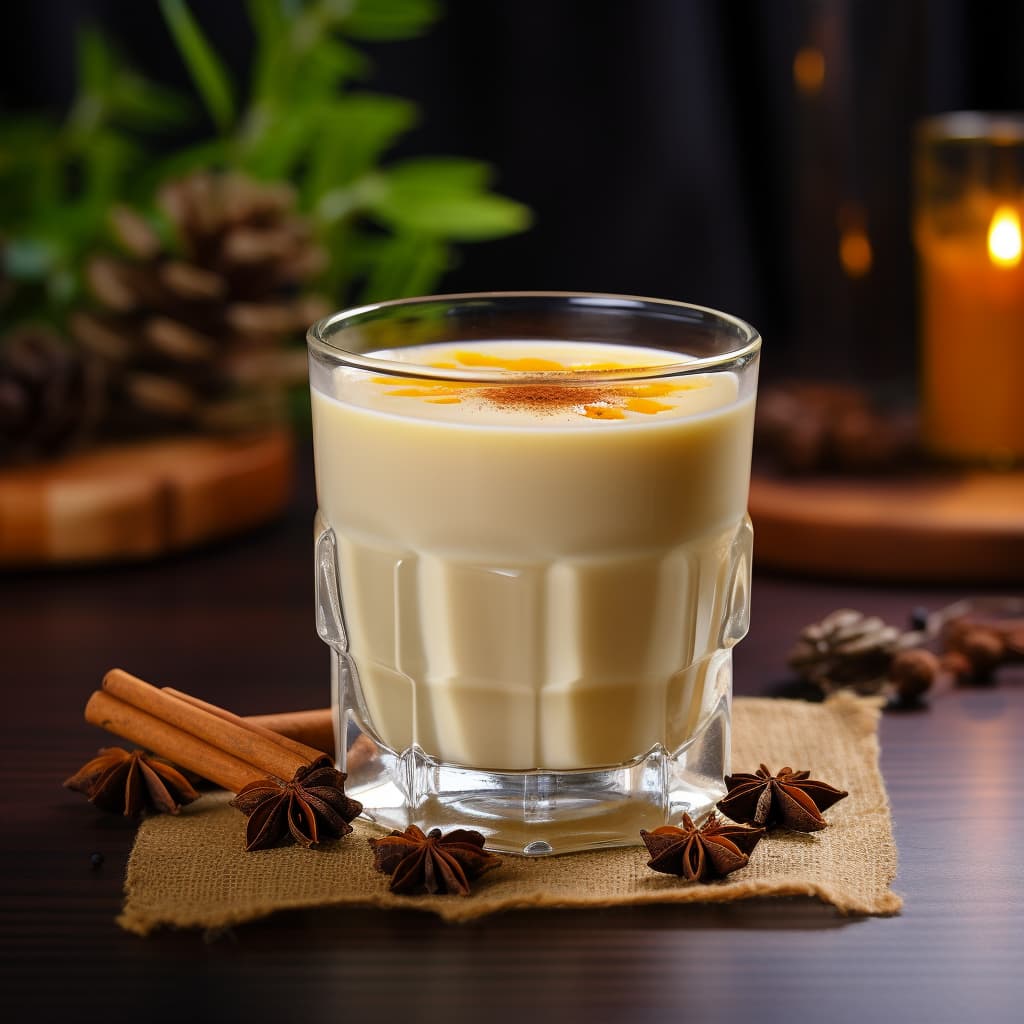
Ingredients:
.
- ashwagandha root powder - amount according to manufacturer on package
- .
- a cup of milk or vegetable drink
- .
- a teaspoon of coconut oil
- .
- half teaspoon turmeric
- .
- half teaspoon cinnamon
- .
- a pinch of cardamom, ginger, nutmeg and pepper
- .
- a teaspoon of honey
- .
Make:
.
Heat the milk/vegetable drink with a teaspoon of coconut oil and honey. When the liquid is blended, add all the spices and ashwagandha. Do not bring to a boil. You can add cinnamon and a few drops of honey on top.
.
How much ashwagandha a day?
.
The dosage of ashwagandha depends on the form in which it is consumed and individual needs. It is recommended to take 300 to 800 mg of extract standardised to a minimum of 2.5% vitanolides per day. The most commonly used and studied daily dose that shows beneficial health effects is 300 mg of extract administered twice daily.
If you choose to consume the powdered root, the recommended daily serving is 3 to 6 grams. For ashwagandha tea, it is recommended from 1 to a maximum 2 tablespoons of root tea per day.
Remember, however, that the daily serving should be adjusted individually, and if in any doubt, consult your doctor or pharmacist. This is especially true if you have a chronic illness and are taking medication on a regular basis.
Please be sure to consult your doctor or pharmacist if you have any doubts.
When will I feel the effects of using ashwagandha?
.
This adaptogen does not work immediately. The vitanolides, the bioactive compounds responsible for ashwagandha's properties, need time to accumulate in the body and take effect.
Ashwagandha begins to take effect after approximately 4-12 weeks daily consumption of 250 mg to 800 mgand. Regular use of ashwagandha in as little as 4 weeks can reduce stress and tension, improve sleep quality and boost energy.
Contraindications to use
.
The use of ashwagandha is not suitable forand:
.
- .
- pregnant and breastfeeding women,
- .
- persons under 18 years of age,
- .
- patients with autoimmune diseases (including thyroid disease, rheumatoid arthritis, diabetes, multiple sclerosis),
- .
- persons with bleeding disorders and gastric ulcers,
- .
- persons planning surgery,
- .
When using ashwagandha, there is a risk of interaction with the metabolism of certain drugs. This includes drugs for epilepsy, hormonal contraception, blood thinning drugs, antidepressants or other psychoactive drugs.
 .
.
Kacper Nihalani doctor
.
Check the exact list of active substances in the article Ashwagandha - what not to combine with?.
Side effects
.
In some people, ashwagandha may cause some side effects such asand:
- bad mood,
- .
- nausea,
- .
- vomiting,
- .
- diarrhoea,
- diarrhoea.
- abdominal pain,
- .
- headache,
- .
- rash,
- .
- insomnia,
- .
- insomnia, nightmares,
- .
- thyroid dysfunction,
- .
These side effects usually occur when using high doses (above 1000 mg of extract) not in accordance with the manufacturer's recommendations. Too long supplementation (more than 12 weeks) may also cause side effects. In addition, interactions with medications can lead to the symptoms mentioned above.
See also:
- Cordyceps (macrocephalus)
- Chaga
- Lion's Mane
- Reishi
- Hogweed
- Berberine
- Adaptogens
- Cordyceps
- Caffeine
- Maca root
- Spirulina
- Chlorella
- Palea passionflower
- Wild rose
Summary
.
- Ashwagandha is a plant used in ayurveda, the oldest medical system in the world.
- Ashwagandha can support women's health in a number of ways, mainly by lowering cortisol, regulating other hormones and improving sleep quality.
- .
- In research studies, the plant has shown potential to support fertility and improve sexual health.
- .
- Women with thyroid disease should absolutely consult a doctor before using ashwagandha.
- .
- The effects of ashwagandha treatment are visible after 4-8 weeks of daily use of high quality preparations.
- .
- Side effects may occur in some women due to a reaction to this adaptogen, exceeding the daily dose or interactions with other active ingredients (e.g. in medications).
As an Amazon Partner, I earn from qualifying purchases
FAQ
.Is ashwagandha safe for people with thyroid disease?
.Persons with thyroid disease should exercise caution when using ashwagandha, as it may modulate thyroid activity. Absolutely consult your doctor if you are ill and want to try ashwagandha.
Can I consume ashwagandha while breastfeeding?
.It is not recommended that ashwagandha be consumed by women who are breastfeeding. There is a lack of research on this topic, so always consult your doctor or pharmacist before starting supplementation. The effect of ashwagandha on a nursing baby is unknown.
Can I combine ashwagandha with other dietary supplements?
.Always consult your doctor or pharmacist if you plan to combine different dietary supplements to be sure they are safe and effective together. There are usually no contraindications to combined supplementation, but the formulations should be checked each time.
Can ashwagandha be addictive?
.No, ashwagandha is not addictive as it does not contain substances that cause mental or physical dependence. Ashwagandha is safe to use and is usually well tolerated if recommended daily portions are not exceeded.
Does ashwagandha have a stimulant effect?
.No, ashwagandha extract ashwagandha does not stimulate because it is not a stimulant and does not have an immediate effect, unlike, for example, caffeine or taurine. However, in some products ashwagandha may be present in the formulation with other stimulating ingredients, but the extract by itself does not act in this way.
Can ashwagandha be given to children?
.No, for safety reasons it is better not to give adaptogens (which ashwagandha is among others) to children and adolescents under 18 years of age. The effect of this plant on the young, still developing body is unknown.
Does ashwagandha make you fat?
.You do not get fat from ashwagandha. You need a caloric surplus to gain weight, and using teas or dietary supplements with ashwagandha (Indian ginseng) does not involve taking in a lot of kilocalories, so its use does not make you fat. Beware, however, of the kilocalories hidden in drinks like moon milk, where fats (such as coconut oil) and other additives are used.
.
Sources
.See all
.A prospective, randomized double-blind, placebo-controlled study of safety and efficacy of a high-concentration full-spectrum extract of ashwagandha root in reducing stress and anxiety in adults-PubMed. (n.d.). Retrieved March 1, 2024, from https://pubmed.ncbi.nlm.nih.gov/23439798/
Ambiye, V. R., Langade, D., Dongre, S., Aptikar, P., Kulkarni, M., & Dongre, A. (2013). Clinical Evaluation of the Spermatogenic Activity of the Root Extract of Ashwagandha (Withania somnifera) in Oligospermic Males: A Pilot Study. Evidence-Based Complementary and Alternative Medicine: eCAM, 2013, 571420. https://doi.org/10.1155/2013/571420
Akbaribazm, M., Goodarzi, N., & Rahimi, M. (2021). Female infertility and herbal medicine: An overview of the new findings. Food Science & Nutrition, 9(10), 5869-5882. https://doi.org/10.1002/fsn3.2523
Atreya, Ayurveda for women, Green Publishing, 2023
Chauhan, S., Srivastava, M. K., & Pathak, A. K. (2022). Effect of standardized root extract of ashwagandha (Withania somnifera) on well-being and sexual performance in adult males: A randomized controlled trial. Health Science Reports, 5(4), e741. https://doi.org/10.1002/hsr2.741
Choudhary, B., Shetty, A., & Langade, D. G. (2015). Efficacy of Ashwagandha (Withania somnifera [L.] Dunal) in improving cardiorespiratory endurance in healthy athletic adults. Ayu, 36(1), 63-68. https://doi.org/10.4103/0974-8520.169002
Choudhary, D., Bhattacharyya, S., & Joshi, K. (2017). Body Weight Management in Adults Under Chronic Stress Through Treatment With Ashwagandha Root Extract. Journal of Evidence-based Complementary & Alternative Medicine, 22(1), 96-106. https://doi.org/10.1177/2156587216641830
Dasgupta, A., Tso, G., & Wells, A. (2008). Effect of Asian ginseng, Siberian ginseng, and Indian ayurvedic medicine Ashwagandha on serum digoxin measurement by Digoxin III, a new digoxin immunoassay. Journal of Clinical Laboratory Analysis, 22(4), 295-301. https://doi.org/10.1002/jcla.20252
Efficacy and safety of standardized Ashwagandha (Withania somnifera) root extract on reducing stress and anxiety in domestic dogs: A randomized controlled trial-ScienceDirect. (n.d.). Retrieved March 1, 2024, from https://www.sciencedirect.com/science/article/abs/pii/S1558787822000326
Efficacy of Ashwagandha (Withania somnifera [L.] Dunal) in improving cardiorespiratory endurance in healthy athletic adults-PubMed. (n.d.). Retrieved March 1, 2024, from https://pubmed.ncbi.nlm.nih.gov/26730141/
Elliott, G. C.. (2002). A brief guide to understanding patentability and the meaning of patents. Academic Medicine: Journal of the Association of American Medical Colleges, 77(12 Pt 2), 1309-1314. https://doi.org/10.1097/00001888-200212001-00002
Examining the effect of Withania somnifera supplementation on muscle strength and recovery: A randomized controlled trial-PMC. (n.d.). Retrieved March 1, 2024, from https://www.ncbi.nlm.nih.gov/pmc/articles/PMC4658772/
Majeed, M., Nagabhushanam, K., & Mundkur, L. (2023). A standardized Ashwagandha root extract alleviates stress, anxiety, and improves quality of life in healthy adults by modulating stress hormones: Results from a randomized, double-blind, placebo-controlled study. Medicine, 102(41), e35521. https://doi.org/10.1097/MD.0000000000035521
Priyanka, G., Anil Kumar, B., Lakshman, M., Manvitha, V., & Kala Kumar, B. (2020). Adaptogenic and Immunomodulatory Activity of Ashwagandha Root Extract: An Experimental Study in an Equine Model. Frontiers in Veterinary Science, 7, 541112. https://doi.org/10.3389/fvets.2020.541112
Shear, R. H., & Kelley, T. E. (2003). A Researcher's Guide to Patents. Plant Physiology, 132(3), 1127-1130. https://doi.org/10.1104/pp.103.022301
Speers, A. B., Cabey, K. A., Soumyanath, A., & Wright, K. M. (2021). Effects of Withania somnifera (Ashwagandha) on Stress and the Stress- Related Neuropsychiatric Disorders Anxiety, Depression, and Insomnia. Current Neuropharmacology, 19(9), 1468-1495. https://doi.org/10.2174/1570159X19666210712151556
Tiwari, S., Gupta, S. K., & Pathak, A. K. (2021). A double-blind, randomized, placebo-controlled trial on the effect of Ashwagandha (Withania somnifera dunal.) root extract in improving cardiorespiratory endurance and recovery in healthy athletic adults. Journal of Ethnopharmacology, 272, 113929. https://doi.org/10.1016/j.jep.2021.113929
US EPA, O. (2013, February 12). Basics of Green Chemistry [Overviews and Factsheets]. https://www.epa.gov/greenchemistry/basics-green-chemistry
Verma, N., Gupta, S. K., Tiwari, S., & Mishra, A. K. (2021). Safety of Ashwagandha Root Extract: A Randomized, Placebo-Controlled, study in Healthy Volunteers. Complementary Therapies in Medicine, 57, 102642. https://doi.org/10.1016/j.ctim.2020.102642
Wankhede, S., Langade, D., Joshi, K., Sinha, S. R., & Bhattacharyya, S. (2015). Examining the effect of Withania somnifera supplementation on muscle strength and recovery: A randomized controlled trial. Journal of the International Society of Sports Nutrition, 12(1), 43. https://doi.org/10.1186/s12970-015-0104-9
Wongtrakul, J., Thongtan, T., Kumrapich, B., Saisawang, C., & Ketterman, A. J. (2021). Neuroprotective effects of Withania somnifera in the SH-SY5Y Parkinson cell model. Heliyon, 7(10), e08172. https://doi.org/10.1016/j.heliyon.2021.e08172
.
Editorials
Meet the team


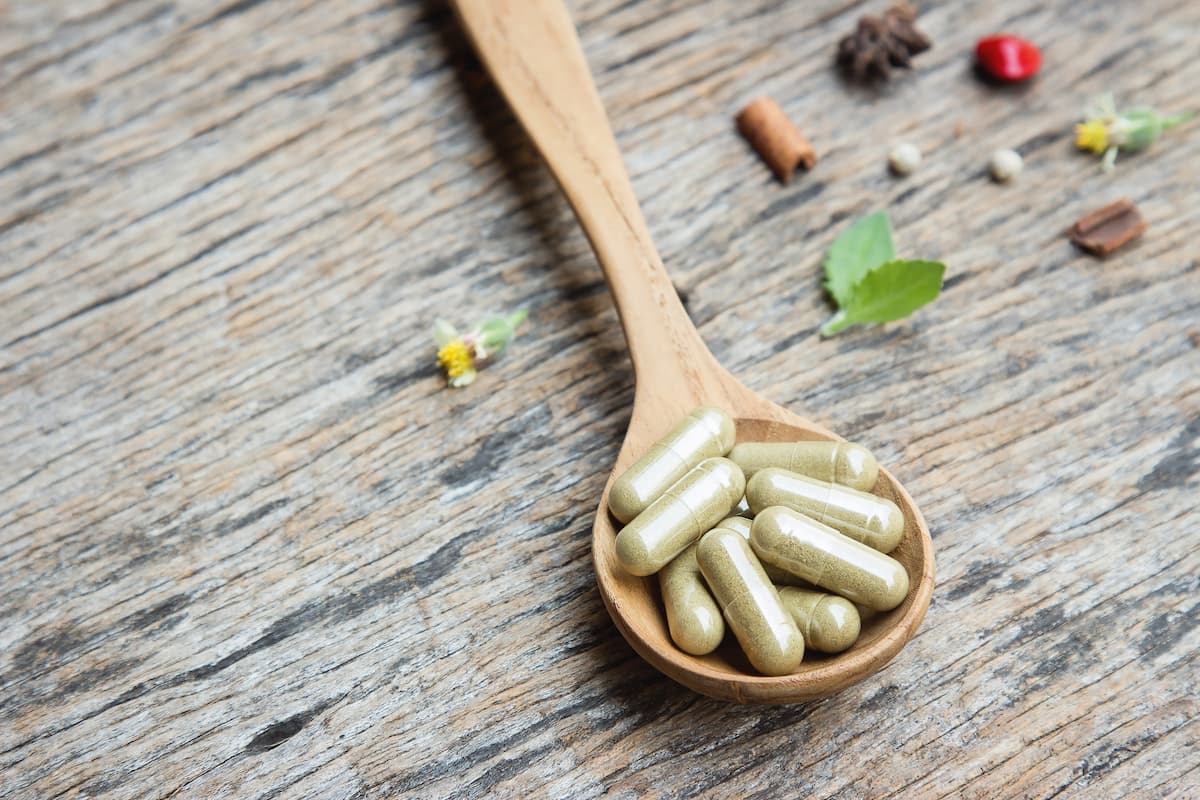
Ashwagandha affects thyroid hormone levels. Find out if you can use it.
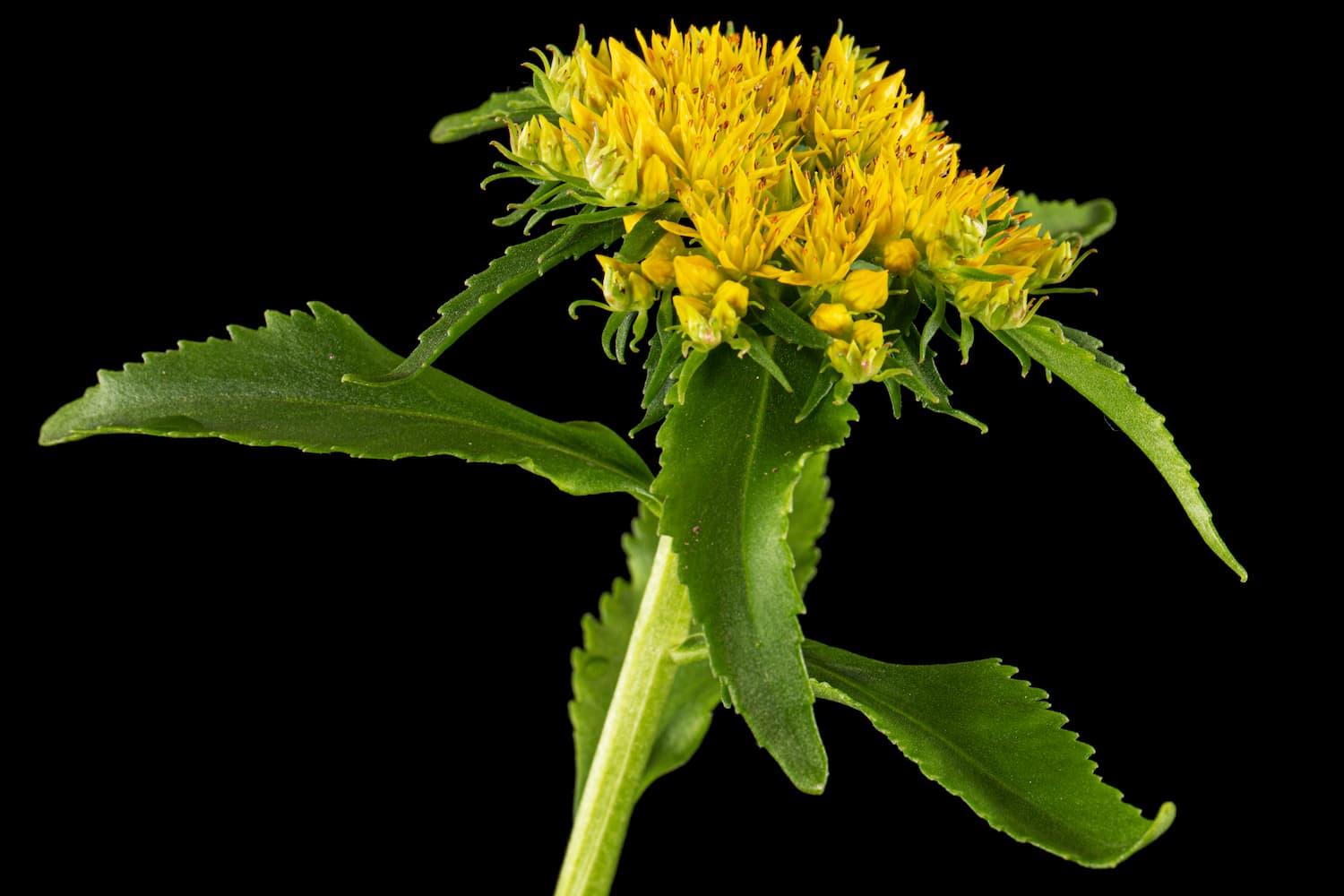
See how mountain pintail can affect your wellbeing.

Check out the opinions of doctors and other professionals about ashwagandha. Also find out what people on the forum think about it.
